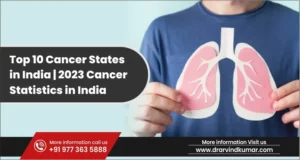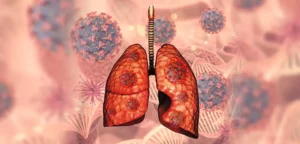Even though you take 25,000 breaths per day, on average, you probably don give it much thought. It is a subconscious activity and you don’t even notice how important it is. The oxygen in your blood is transferred from your lungs to your body with each breath you take.
However, if you have lung issues, the scenario is different. For instance, an increasing number of patients are now being given a lung cancer diagnosis. And more people are dying each year from lung diseases.
Knowing the signs might help you identify problems early because symptoms can match those of a cold or allergies.
In case you have any of the following symptoms, don rule out your lungs. They might be telling you to look more closely especially if it could be something like lung cancer as early diagnosis of lung cancer can drastically improve life expectancy after a lung cancer diagnosis.
Different Types of Lung Disease
Lung disease refers to several illnesses that affect the lungs. When you have a lung disease, your body does not get enough oxygen. The most common lung diseases include:
- Asthma affects the bronchial tubes, which are the airways that move air into and out of the lungs. The airways become exceedingly sensitive, irritated, or swollen when you have asthma. Smoke, smog, mold, chemical sprays, and other irritants cause them to overreact.
- Chronic Obstructive Pulmonary Disease (COPD), is a term that stands for both emphysema and chronic bronchitis. They frequently occur simultaneously. Both make breathing challenging and typically get worse with time.
When you have chronic bronchitis, your airways get inflamed and produce more mucus, which causes you to cough frequently. The airways scar with time, restricting airflow to and from the lungs.
Emphysema weakens the lung tissue and causes the air sac walls to tear. As a result, breathing difficulties including wheezing and coughing result from less oxygen getting into the blood.
- Lung Cancer: Malignant lung cells grow abnormally and develop out of control in patients with lung cancer. These malignant cells can spread throughout the body, infiltrate neighboring tissues, or do both. Small cell and non-small cell lung cancer are the two main types. Non-small cell lung cancer is more common than small cell lung cancer and spreads more slowly.
Read More : What Are the Early Warning Signs of Lung Disease?
Warning Signs That Your Lungs Are Failing
If your lungs are in trouble, you struggle. It makes natural to expect that lung disease would influence your ability to breathe, but certain symptoms take time to manifest. Your body can send out an SOS in many different ways especially if its trying to fight an illness such as cancer. It is imperative to listen to your own body and pay attention to early signs so that you can detect problems at the earliest because, in lung diseases like cancer, an early lung cancer diagnosis and treatment can potentially improve the chances of survival. If you spot these symptoms, you can take care of your weak lungs and breathe a little easier.
You never have enough energy
Do you feel as though youve run a marathon after climbing just one flight of stairs? Do you frequently find that you cannot complete things without a nap? To make the energy that powers your motor, your cells need oxygen. You begin to lag when your lungs aren providing your body with enough oxygen. Additionally, feeling short of energy might set off a vicious cycle whereby exhaustion prevents you from exercising and inactivity makes it more difficult to maintain your endurance, even for daily duties.
Have trouble breathing
You might believe that growing older inevitably results in becoming breathless, but that isn always the case. It could be time for your doctor to listen to your lungs if your days of effortless breathing have suddenly vanished. Shortness of breath often results from problems emptying the lungs sufficiently and having too much air trapped inside your chest. Even when breathing out isn a problem, ill lungs can make you gasp by failing to do their primary function, which is supplying enough oxygen to your blood.
Confusion and haze
Did you know that your brain consumes 15% to 20% of the oxygen in your body? Your brain requires oxygen to function properly; if your O2 level drops because your lungs aren supplying enough, your thoughts may become confused. Low oxygen levels and high carbon dioxide levels might make a person confused or tired.
Excessive production of mucus
A lot of mucus in your chest that persists for a month or more may be an indication of lung illness. According to the American Lung Association, phlegm is created by the airways as a defense against irritants or diseases. A medical expert should unquestionably assess chronic mucus production.
Unexplained Weight loss
A variety of physical issues brought on by advanced lung illness may cause you to suddenly lose a few kg. There can be widespread inflammation, which reduces muscle mass, in those with COPD in particular. Additionally, consuming much food in one sitting may be challenging if breathing becomes difficult as your stomach fills up early.
A persistent cough.
A persistent cough should be taken seriously, especially if it is accompanied by mucus, blood, or a fever. Being a smoker, its especially concerning because its a typical indicator of emphysema, Lung Cancer or chronic bronchitis. If your cough lasts longer than 3 weeks, especially if it becomes increasingly difficult for you to breathe, let your doctor know.
Chest pains.
Heart problems are characterized by chest pain, but the lungs can also cause discomfort. The lining of your chest has pain nerves, not your lungs. Pleuritis, a type of chest pain brought on by inflammation irritating the lining of the chest cavity, can occur. Additionally, coughing may have caused muscle strain, or your pain could be coming from a collapsed lung. In rare cases, patients with big lung cavities may experience a cavity that bursts, allowing air to enter the chest cavity surrounding the lung and causing some discomfort.
Blue-grey tint
Your skin seems healthy-looking thanks to your red blood cells, which supply oxygen to your tissues. Bluish-grey lips, fingers, and toes are a sign that those body parts aren receiving enough oxygen. Skin darkening is more frequently seen in advanced lung illnesses. Although it can happen while people are at rest as well, it frequently occurs when people exert themselves.
When you breathe, you wheeze
When something is obstructing your airways, wheezing typically has a raspy sound. Emphysema or asthmatic airway obstructions may be the cause of your symptoms. The air sacs are not as elastic and springy as they should be, which prevents air from leaving as quickly as it should. In any case, you should visit the lung surgeon in India so they may examine your lung sounds.
A bloody cough
Coughing blood should be reported to your doctor immediately as this could indicate a dangerous medical condition. Fugal Ball (aspergilloma, mucormycosis, CA Lung, Carcinoid, Bronchiectasis, endo bronchial tumour may be a cause of hemoptysis. The most serious cause of hemoptysis though, (coughing up blood) is lung cancer.
Conclusion
Lung disease symptoms might start very subtly and develop gradually. People frequently believe their symptoms to be indications of aging or poor fitness. Instead of seeking assistance, many people adapt their regular routines to accommodate or lessen their symptoms. Understanding the early signs of lung disease can help you get treated before the condition worsens or becomes life-threatening. The moment you see any of the warning signals listed above, schedule a visit with your doctor very away.
FAQs
1. What are the symptoms of early diagnosis of lung cancer?
Usually, there are no warning signs of early lung cancer detection. Most lung cancer patients experience symptoms long after the disease has worsened.
- Lung cancer symptoms may include:
- A cough that persisted or worsened
- difficulty breathing, such as shortness of breath
- exhaling blood
- chest pain
- a raspy voice or wheezing
- Pneumonia that persists or returns after disappearing
You might also experience extreme fatigue, a loss of appetite, or unexpected weight loss. Its crucial to discuss lung cancer with your doctor if you experience any symptoms as a timely lung cancer diagnosis and treatment can be beneficial.
The doctor will ask about your health history, smoking history, and exposure to harmful substances and also do a physical exam and may suggest some radiological tests like CT Scan and PET Scan.
2. How is COPD treated?
The lungs cannot be healed after damage. However, the sickness can be slowed by preventing some exposures. The greatest strategy for smokers is to give up. At home and work, you should reduce your exposure to smoke, dust, fumes, and irritating vapors. Additionally, avoid being outside when there are air quality warnings. Symptoms may be reduced by treatment. Typical medications include:
- bronchodilators to widen pulmonary airways
- Steroids are inhaled to treat symptoms by lowering lung inflammation
- antibiotics to treat pulmonary infections
Doctors may also advise the following for people with COPD:
- Flu vaccines
- Pneumonia injections.
- Exercise and training for pulmonary rehabilitation are used to control the illness.
- Oxygen treatment.
- Surgery. In some cases, patients with severe COPD may feel better after undergoing lung transplant surgery.
3. How is the diagnostic evaluation of lung cancer done?
Common lung cancer diagnostic tests include:
- Chest x-rays Doctors can “see” abnormal lung growths via chest x-rays.
- Computerized tomography scans (CT scans). Standard x-rays are less effective than CT scans. Images may reveal cancer symptoms that are difficult to see on x-rays. By doing this, there is a greater chance of discovering cancer before it has progressed too far.
- Pneumonia cytology. When you cough out a sample of mucus, it is examined to check if it contains any cancerous cells.
- Bronchoscopy. A bronchoscope is a unique tube that medical professionals use to enter the lungs through the nose or mouth. They can examine the lungs and take small samples of tissue for testing.
- Fine needle Aspiration: To extract a little amount of tissue or fluid from the lung, doctors insert a needle through the chest wall.
- Thoracotomy: During this procedure, doctors cut open the chest to remove lung tissue.

.webp)



